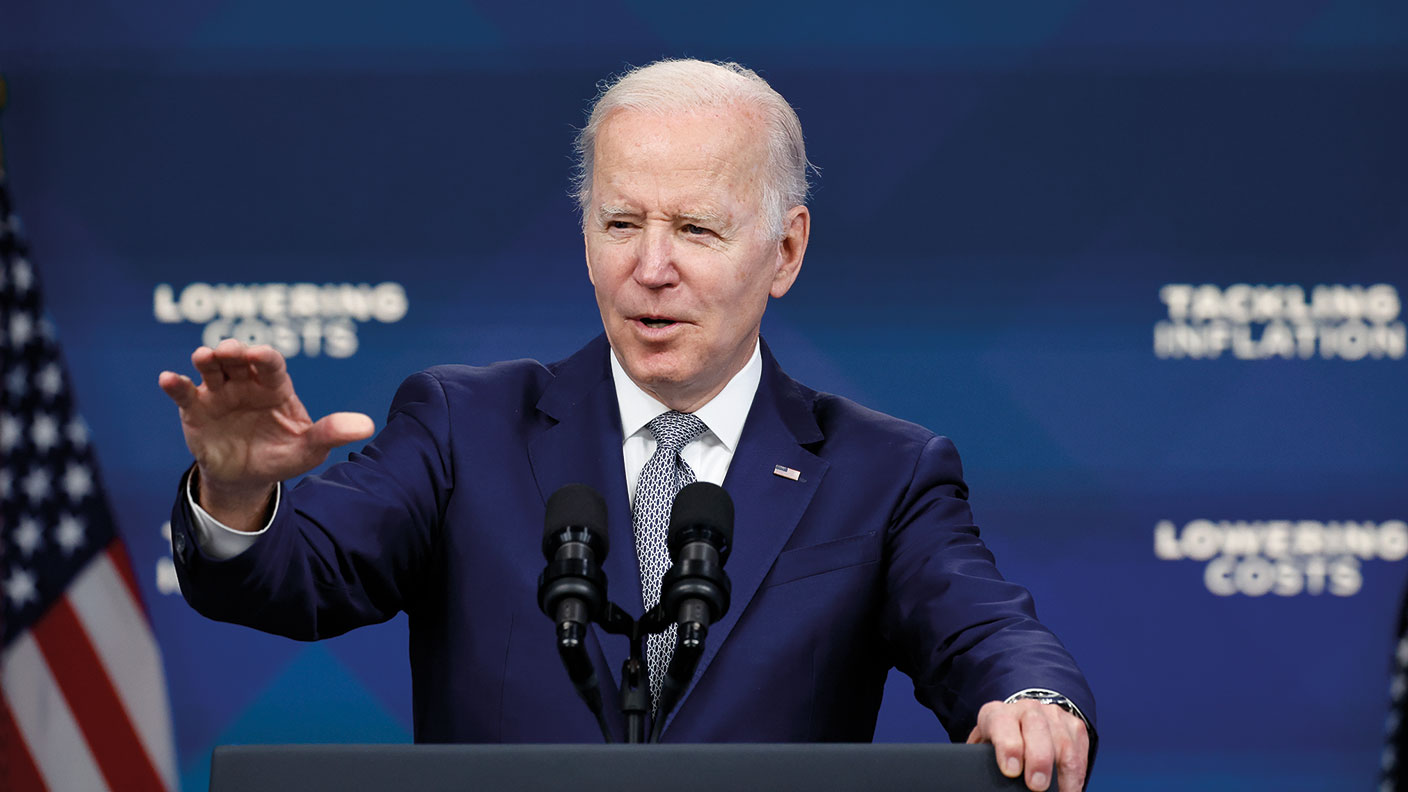It’s time to buy China
China is cheap. And with radical reforms on the table, it's time to buy, says Merryn Somerset Webb.

Get the latest financial news, insights and expert analysis from our award-winning MoneyWeek team, to help you understand what really matters when it comes to your finances.
You are now subscribed
Your newsletter sign-up was successful
Want to add more newsletters?

Twice daily
MoneyWeek
Get the latest financial news, insights and expert analysis from our award-winning MoneyWeek team, to help you understand what really matters when it comes to your finances.

Four times a week
Look After My Bills
Sign up to our free money-saving newsletter, filled with the latest news and expert advice to help you find the best tips and deals for managing your bills. Start saving today!
Everyone's bullish. But most people have a strong feeling that it's dangerous to be bullish. I think that pretty much sums up the feeling in the market right now.
We all know the US is fully valued and probably grossly overvalued, for example. But we also know that the US Federal Reserve is likely to keep on with its programme of quantitative easing (QE) for many months to come; that Japan, which has already printed more money than the US relative to its GDP, is only just getting warmed up; and that at some point the European Central Bank will have to join the party too. And if we have learnt anything from the last few years, it is that if you print a pile of money and chuck it into the asset markets, prices go up which is why we told you a few years ago that it didn't really matter much what you bought, as long as you bought something.
That's probably still the case. We are worried about bubbles (you could say we are always worried about bubbles), but we also recognise that QE means rising stockmarkets. So what to do? We favour caution, and holding a cash buffer. But we don't want to be out of markets. We want to be in. So the best we can do is to try to put our money in the few places where we see value, and a trigger for change that might unlock that value. That way we get to join in what we think could well be a "melt-up" in markets, but if it all goes horribly wrong which, let's face it, in a rational world, it would we stand a chance of not doing as badly as some.
MoneyWeek
Subscribe to MoneyWeek today and get your first six magazine issues absolutely FREE

Sign up to Money Morning
Don't miss the latest investment and personal finances news, market analysis, plus money-saving tips with our free twice-daily newsletter
Don't miss the latest investment and personal finances news, market analysis, plus money-saving tips with our free twice-daily newsletter
Where is that value? There's Japan, of course (regular readers need to know little more about this). But this summer I also suggested you start putting money into China. Not much, but some. In the wake of last week's Plenum we'd reiterate that suggestion. It may or may not represent "the biggest package of economic reforms since the 1980s", as Bloomberg puts it.
But there are some radical ideas in there. The one that really grabbed me? Improvements to the corporate governance of the big state-owned enterprises (SOEs), including forcing them to pay bigger dividends. There is a view that if you are investing in China you should avoid all SOEs. I'm not so sure. They're very cheap and their corporate governance is about to improve. Avoid them? I'd target them.
The same goes for Russia, and for that matter, South Korea. They're cheap (Russia is the cheapest market in the world as far as I know) and the thing that mostly makes them cheap (bad corporate governance) is on the turn. That makes them all worth holding. Amazingly, I'm not the only one who is coming round to China at the moment. Bill is too he says that a few years out, Chinese stocks bought at today's prices "could look like great bargains". Coming from Bill, that's about as bullish as it gets.
Get the latest financial news, insights and expert analysis from our award-winning MoneyWeek team, to help you understand what really matters when it comes to your finances.

-
 Early signs of the AI apocalypse?
Early signs of the AI apocalypse?Uncertainty is rife as investors question what the impact of AI will be.
-
 Reach for the stars to boost Britain's space industry
Reach for the stars to boost Britain's space industryopinion We can’t afford to neglect Britain's space industry. Unfortunately, the government is taking completely the wrong approach, says Matthew Lynn
-
 What to do as the age of cheap money and overpriced equities ends
What to do as the age of cheap money and overpriced equities endsEditor's letter The age of cheap money, overpriced equities and negative interest rates is over. The great bond bull market is over. All this means you will be losing money, says Merryn Somerset Webb. What can you do to protect yourself?
-
 Investors are bullish – but be very careful
Investors are bullish – but be very carefulEditor's letter Many investors are buying the dip, convinced the latest upswing is the start of a new bull market. The odds are that it’s not, says Andrew Van Sickle. The bear has unfinished business.
-
The MoneyWeek approach to investing
Editor's letter At MoneyWeek, our aim is simple: to give you intelligent and enjoyable commentary on the most important financial stories, and tell you how to profit from them. So how do we do that?
-
 Celebrity bitcoin ads echo the subprime mortgage crisis
Celebrity bitcoin ads echo the subprime mortgage crisisEditor's letter A wave of ads featuring celebrities punting crypto to the masses are reminiscent of how low income Americans were encouraged to take on loans they couldn’t afford, says Merryn Somerset Webb.
-
 Will the UK's property slowdown turn into a house-price crash?
Will the UK's property slowdown turn into a house-price crash?Editor's letter As the cost-of-living crisis intensifies and interest rate rise, it is hard to see reasons for UK house prices to keep rising, says Merryn Somerset Webb.
-
 The unintended consequences of ESG investing
The unintended consequences of ESG investingEditor's letter Many people are refusing to invest in energy companies, citing "ESG" concerns. But we still need fossil fuels, says Merryn Somerset Webb, and will for years to come. Boycotting the sector is a bad idea.
-
 What sardines can teach investors about today's markets
What sardines can teach investors about today's marketsEditor's letter A California tale of “eating sardines” and “trading sardines” can help us divide investments into speculative and real, says Merryn Somerset Webb. Something that's very useful when looking at today’s markets.
-
 The market finally seems to be getting it
The market finally seems to be getting itEditor's letter Reality checks are coming fast to the markets, says Merryn Somerset Webb – with even 2022’s safe havens beginning to reflect recession worries.